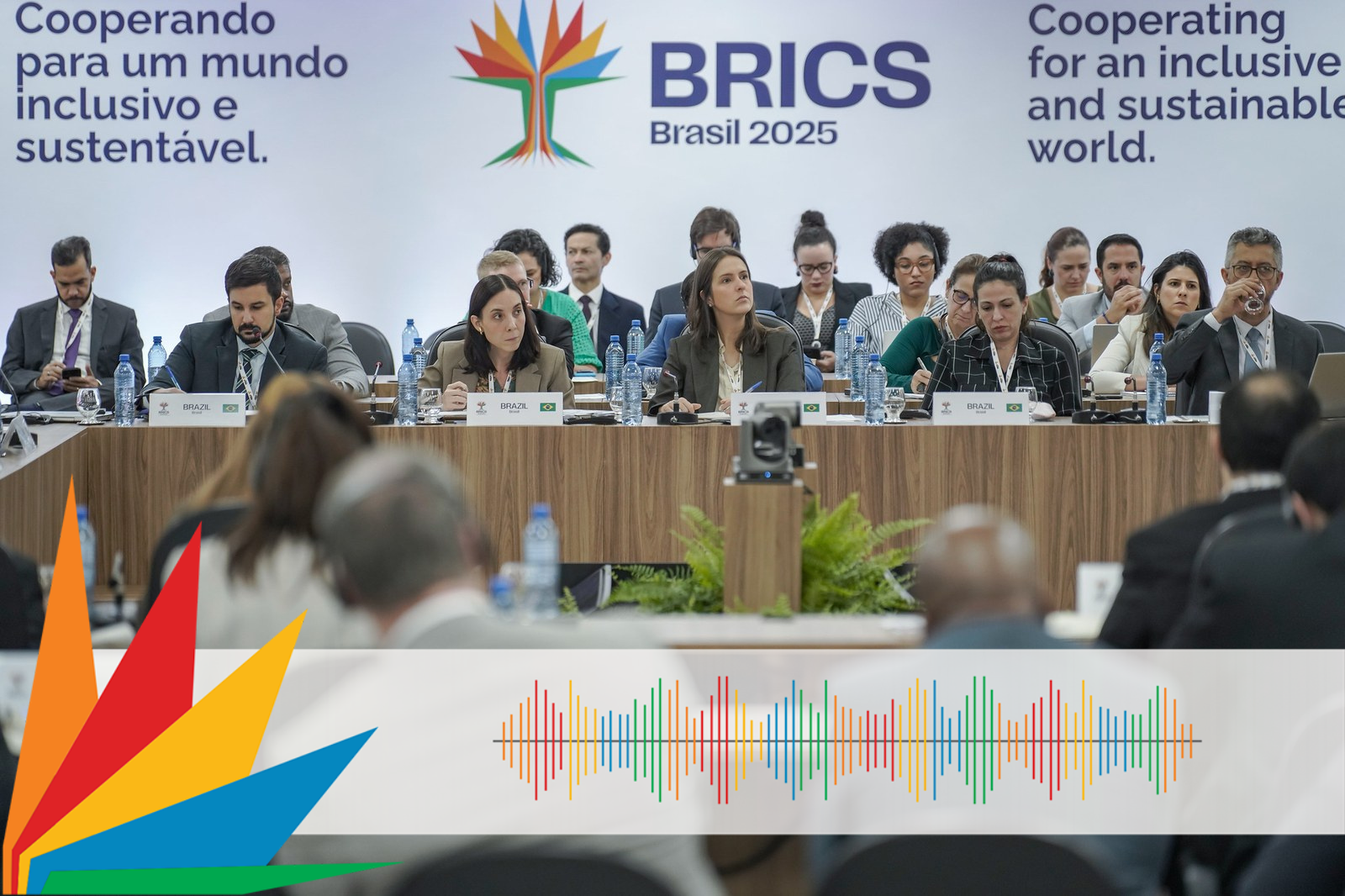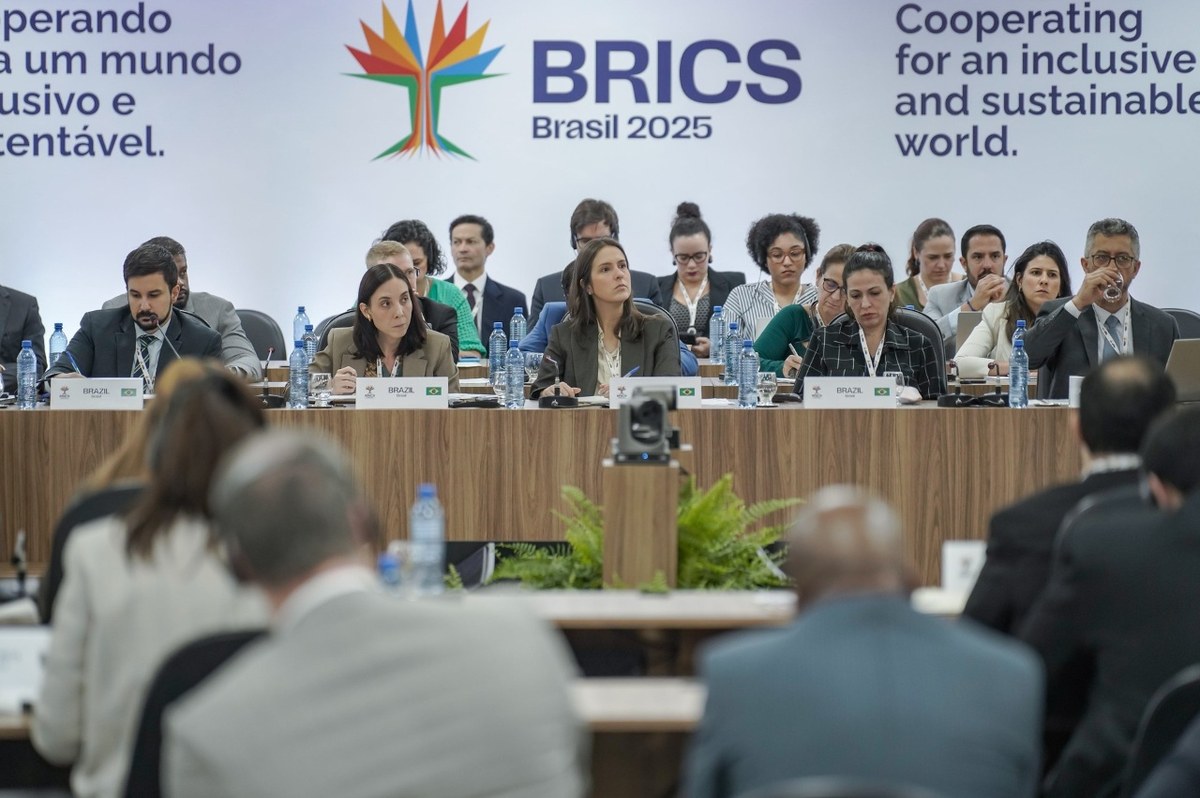BRICS Brasil Bulletin #14 - Education and Anti-Poverty Programs Help Prevent Terrorism, BRICS Group Find
BRICS describes education and the fight against poverty as essential tools to combat terrorism. ABIN led the BRICS Counterterrorism Working Group’s discussions on technology, funding and deradicalization, reinforcing the importance of international cooperation. Listen to the full report here

Report: Leandro Molina / BRICS Brasil
Collaboration: Luciana Marques / ABIN
Voice-over: Laura Carrasco Frederico
Reporter: After three days of deliberations in Brasilia, the BRICS Counterterrorism Working Group concluded that promoting education and combating poverty were fundamental tools in the fight against terrorism, which often exploits minorities and vulnerable regions to sustain its operations. The Working Group is currently coordinated by the Brazilian Intelligence Agency (Agência Brasileira de Inteligência, ABIN).
According to the group, the financing of terrorism represents a global threat to peace and public safety, with far-reaching consequences for economic and social stability—underscoring the need for preventive strategies. Special concern was expressed for children and other family members exposed to adverse social conditions. Ana Ribeiro, Director of ABIN’s Department of External Intelligence and head of the Brazilian delegation to the Working Group, stressed that governments’ responses must be continuously adapted and updated in light of the rapidly shifting strategies, methods and tactics of terrorist groups and violent extremist movements.
Ana Ribeiro: We began by proposing the creation of a matrix to map supply and demand for training across all delegations. In addition, we showcased the progress Brasil has made in developing methodological and analytical benchmarks to assess violent extremism and guide the State’s response to the issue.
Reporter: The meeting also explored global trends in terrorism, with a focus on how extremist groups are leveraging emerging technologies. Artificial intelligence, for example, is increasingly used for recruitment and propaganda—something Director Ana Ribeiro highlighted.
Ana Ribeiro: In recent years, we’ve seen artificial intelligence become incorporated into terrorist propaganda and recruitment efforts in a powerful way. That was one of the key topics we discussed at the meeting. At the same time, we also discussed how governments might use these same technologies to strengthen their own capabilities.
Reporter: Walid Elfiky, head of the Egyptian delegation to the Counterterrorism Working Group, praised the depth of the discussions held and underscored the importance of coordinated action against terrorism and extremism.
Walid Elfiky: He stated that terrorism has no religion and cannot be attributed to any specific cultures or regions. In light of this, he argued that BRICS, with its diversity of nations, is uniquely positioned to develop effective strategies that can be presented in global forums such as the United Nations.
Reporter: ABIN will continue working to consolidate the proposals that were approved during the meeting in Brasília. The aim is for these mechanisms to be fully operational by next year, further strengthening BRICS cooperation in the fight against terrorism.
English version by: Judas Tadeu de Azevedo Neto (POET/UFC)
Proofreading by: Enora Lessinger (POET/UFC)
